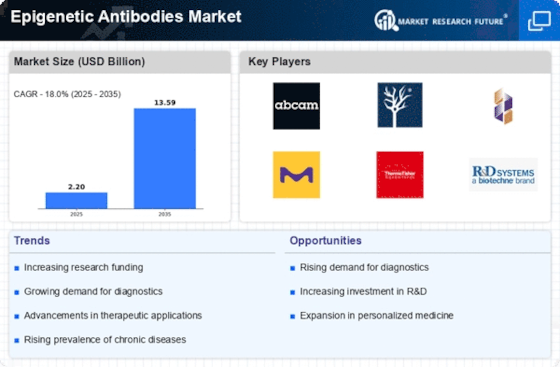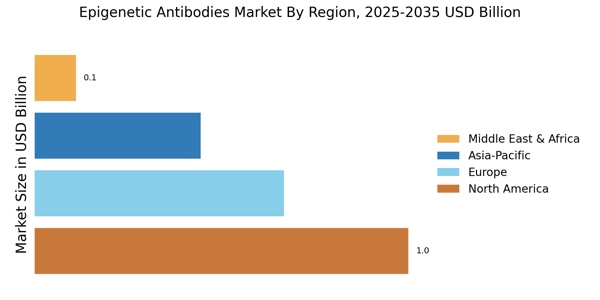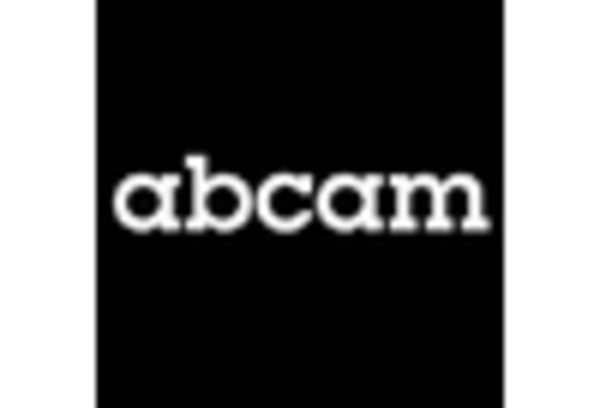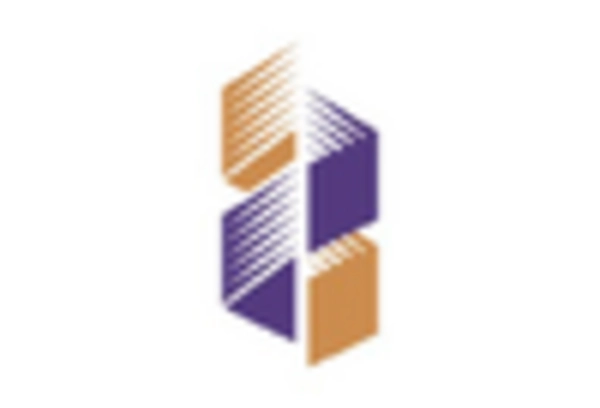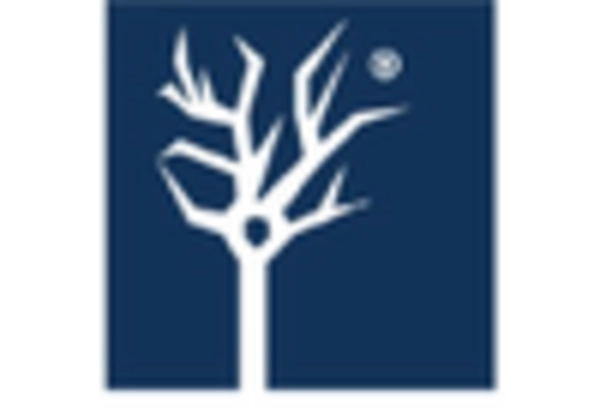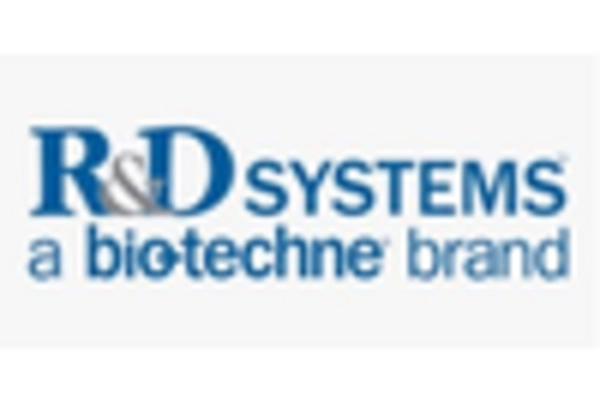Advancements in Biotechnology
Technological advancements in biotechnology are significantly influencing the Epigenetic Antibodies Market. Innovations in antibody production techniques, such as recombinant DNA technology and monoclonal antibody development, have enhanced the specificity and efficacy of epigenetic antibodies. These advancements facilitate the creation of high-quality antibodies that can be utilized in various applications, including research, diagnostics, and therapeutics. The market for epigenetic antibodies is expected to witness substantial growth, with projections indicating a compound annual growth rate (CAGR) of over 10% in the coming years. This growth is driven by the increasing adoption of advanced biotechnological methods, which are essential for the development of novel epigenetic therapies.
Rising Prevalence of Chronic Diseases
The increasing incidence of chronic diseases such as cancer, diabetes, and cardiovascular disorders appears to be a primary driver for the Epigenetic Antibodies Market. As these diseases often involve epigenetic modifications, there is a growing demand for epigenetic antibodies that can aid in understanding disease mechanisms and developing targeted therapies. According to recent estimates, the prevalence of cancer alone is projected to rise significantly, necessitating advanced research tools. This trend is likely to propel investments in epigenetic research, thereby expanding the market for epigenetic antibodies. Furthermore, the need for innovative diagnostic and therapeutic solutions in chronic disease management underscores the importance of epigenetic antibodies in modern medicine.
Growing Focus on Personalized Medicine
The shift towards personalized medicine is emerging as a crucial driver for the Epigenetic Antibodies Market. As healthcare moves towards tailored treatment approaches, the role of epigenetic modifications in individual responses to therapies becomes increasingly relevant. Epigenetic antibodies can provide insights into patient-specific disease mechanisms, enabling healthcare providers to devise more effective treatment plans. The market is witnessing a surge in demand for epigenetic antibodies that can assist in biomarker discovery and patient stratification. This trend is likely to enhance the market landscape, with estimates suggesting that personalized medicine could account for a significant portion of the overall healthcare expenditure in the near future.
Regulatory Support for Biopharmaceuticals
Regulatory support for biopharmaceuticals is playing a significant role in shaping the Epigenetic Antibodies Market. Regulatory agencies are increasingly recognizing the importance of epigenetic research in drug development and are streamlining approval processes for epigenetic therapies. This supportive regulatory environment encourages pharmaceutical companies to invest in the development of epigenetic antibodies, as it reduces the time and cost associated with bringing new products to market. The anticipated growth in the biopharmaceutical sector, driven by favorable regulations, is expected to bolster the demand for epigenetic antibodies. As a result, the market is poised for expansion, with projections indicating a robust increase in the adoption of epigenetic-based therapies.
Increased Investment in Research and Development
Investment in research and development (R&D) is a pivotal factor driving the Epigenetic Antibodies Market. Governments and private entities are allocating substantial funds to support research initiatives focused on epigenetics, recognizing its potential in understanding complex biological processes. This influx of funding is likely to accelerate the development of novel epigenetic antibodies, fostering innovation in therapeutic applications. Recent reports indicate that R&D spending in the life sciences sector has seen a marked increase, with a focus on epigenetic research. This trend not only enhances the market for epigenetic antibodies but also promotes collaboration among academic institutions, biotechnology firms, and pharmaceutical companies.


